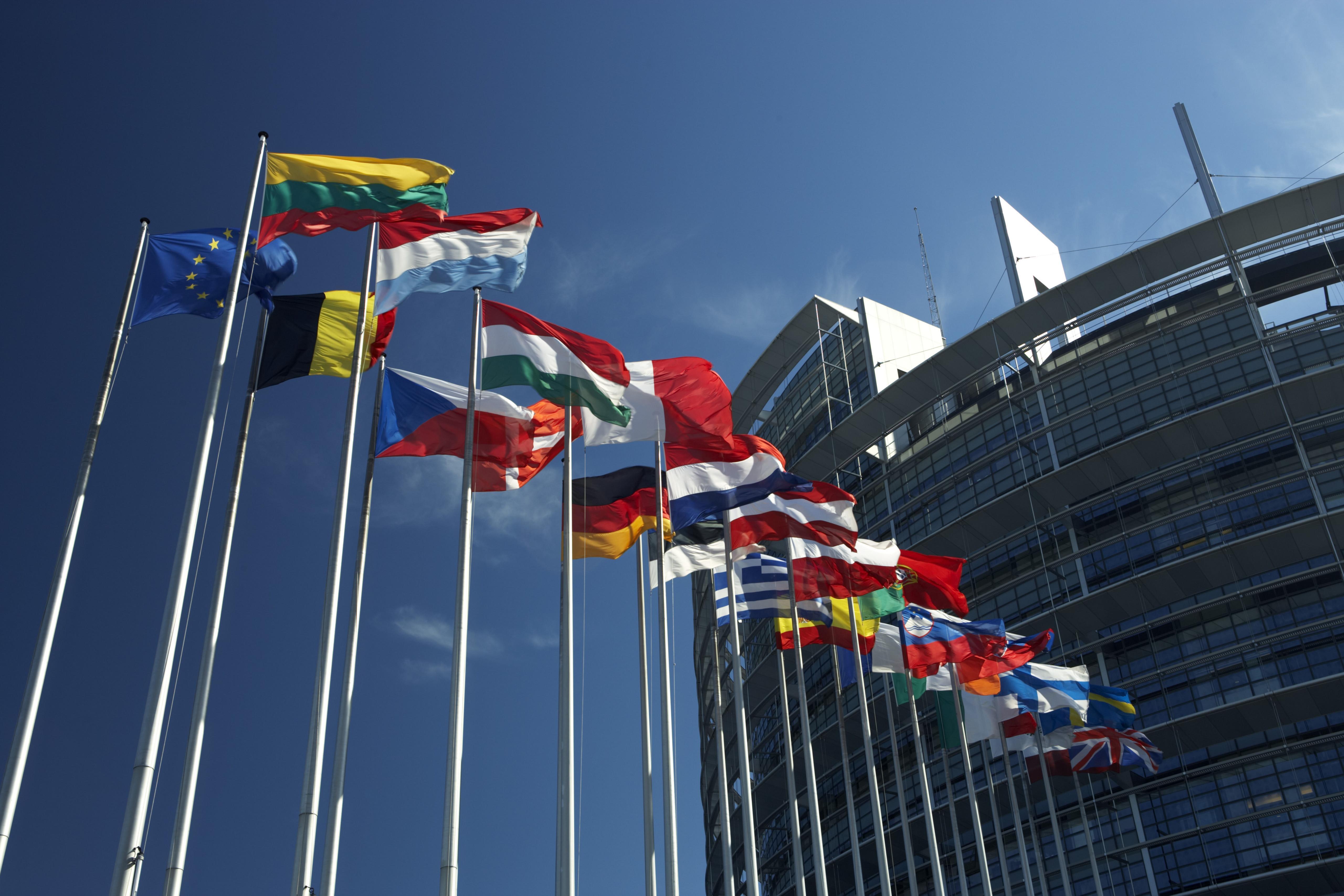EU asylum policy
This is how liberal Europe comments on the EU asylum compromise

Fahnenmasten mit den Flaggen der EU-Staaten wehen vor dem Gebäude des Europaparlaments in Strasbourg, Frankreich, Europa
© picture alliance / imageBROKER | Thomas RufferHardly any observers had evaluated this agreement possible after years of tug-of-war over asylum reform: At the beginning of June, the interior ministers of the EU member states, including Nancy Faeser (SPD), voted in favor of a significant tightening of European asylum policy.
A new feature of the asylum compromise is an express procedure in facilities at the external borders for people from countries considered safe with a low recognition rate. In addition, the immediate repatriation of rejected asylum seekers to safe third countries will be possible. The traffic light parties also justified their approval on the grounds that an agreement would have failed if Germany had abstained. Overall, it could be observed in the debates that a broad majority in Europe was in favor of more control in immigration.
With this, Brekelmans addresses an important point: express returns, which are supposed to take place within 12 weeks, will only happen if appropriate agreements were concluded with third countries. Tunisia has already spoken out against this after a visit by EU Commission President Ursula von der Leyen, Dutch Prime Minister Mark Rutte (VVD) and Italian Prime Minister Giorgia Meloni ("Fratelli d'Italia"). Without these agreements, however, untenable conditions would arise in the foreseeable future in the camps at the EU's external borders, and a central building block of the agreement would become obsolete.
With this, Veld also addresses an important point: The outcome of the interior ministers will now be negotiated with the European Parliament. Critics of the agreement hope here a weakening of the compromise of the interior ministers. For example, exceptions for families with underage children from procedures at the external borders are to be renegotiated into the final deal, something that German Interior Minister Faeser has already advocated during the negotiations. Opponents, however, fear that this could create false incentives, such as taking minors along dangerous migration routes in the first place.
Austria
Stefanie Krisper (NEOS), a member of the National Council in Vienna, also welcomes the agreement in principle, but cautions that human rights must be protected - and sees the European Parliament as having a duty to do so. She also draws attention to the occasional discrepancy between the legal situation and practice, such as illegal "pushbacks" at the external borders. Criticism from a human rights perspective includes, for example, limited access to legal assistance at the external borders and a lack of legal protection when appealing against rejected asylum decisions, in addition to compliance with minimum standards in accommodations at the borders.
Johannes Vogel, First Parliamentary Director of the FDP parliamentary group in the Bundestag, thus brings an important context into focus. For anyone who sees Europe as an internal space, perhaps even advocates a European federal state, and does not want to jeopardize central achievements of the EU such as the Schengen area, will come to the conclusion that the external borders of this space must be better controlled. Otherwise, hardliners in many member states threaten to reintroduce border controls within the EU, thus creepily ending the free movement of EU citizens. Without better control of the external borders, these forces would be likely to gain strength in the coming elections.
